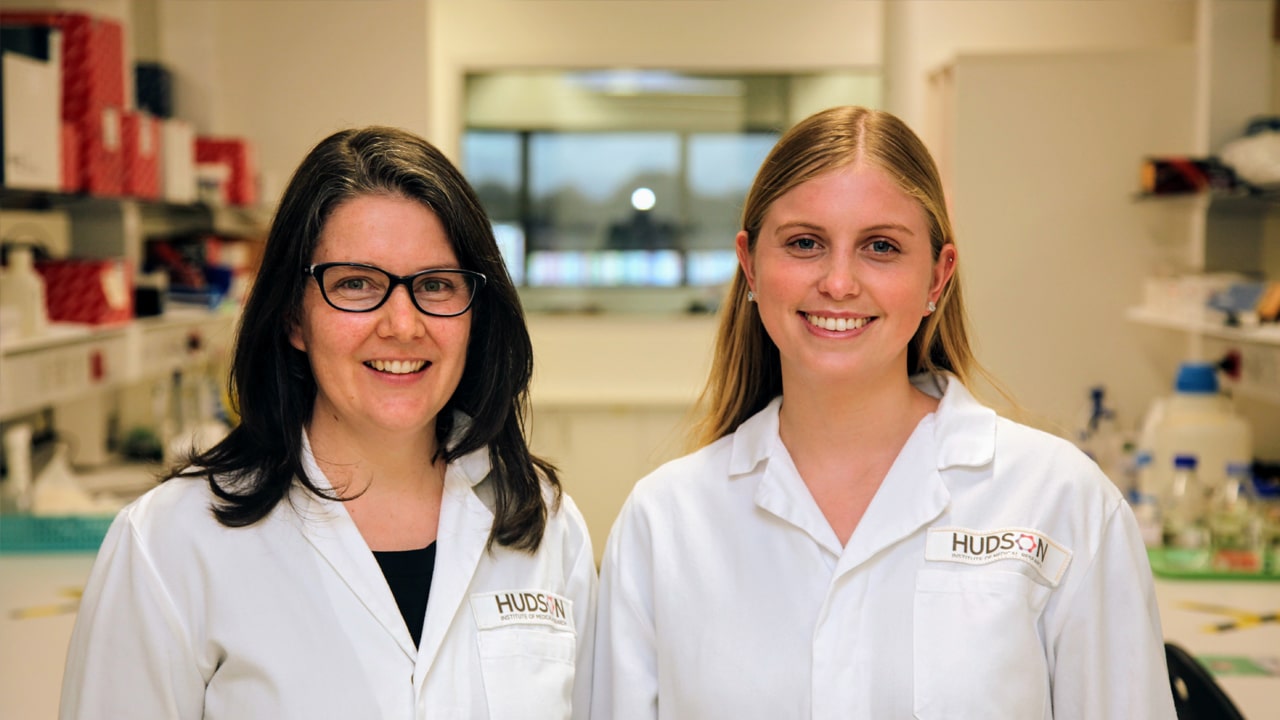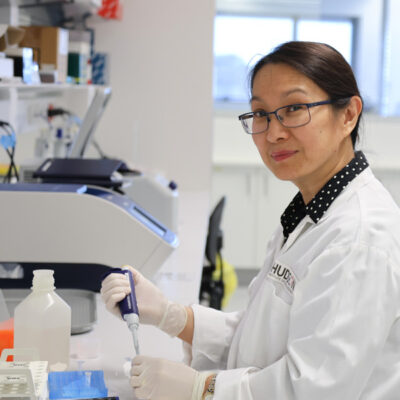Menstrual fluid – new endometriosis hope
By Hudson Institute communications

There’s new hope for tens of thousands of Australian women, with researchers making a crucial discovery in the battle to detect endometriosis.
Endometriosis is a devastating disease affecting 11 per cent of Australian women of reproductive age. Its many effects include debilitating pain, migraines, bladder and bowel dysfunction, depression and infertility, adding up to a cost to the Australian community of $7.4 billion each year.
On average, women suffer for 11 years before the condition is diagnosed, and even then, diagnosis often requires invasive surgery.
But now researchers at Hudson Institute of Medical Research have made a crucial discovery which could lead to much earlier and less invasive diagnosis.
Dr Caitlin Filby and Katherine Wyatt have now established a baseline for testing.
A non-invasive menstrual fluid test would help uncover the undiagnosed population of women with endometriosis, allowing girls and women to access healthcare early and prevent disease progression.
This has enormous clinical implications for the women who wait up to 12 years for a surgical diagnosis.
More work remains to be done before a reliable test can be created, but researchers at Hudson Institute are now recruiting for further study in this area and interested participants can find out more here.
Read about ‘Menstrual fluid endometrial stem/progenitor cell and supernatant protein content: cyclical variation and indicative range’ published in Human Reproduction.
About Hudson Institute
Hudson Institute’ s research programs deliver in three areas of medical need – inflammation, cancer, women’s and newborn health. More
Hudson News
Get the inside view on discoveries and patient stories
“Thank you Hudson Institute researchers. Your work brings such hope to all women with ovarian cancer knowing that potentially women in the future won't have to go through what we have!”




